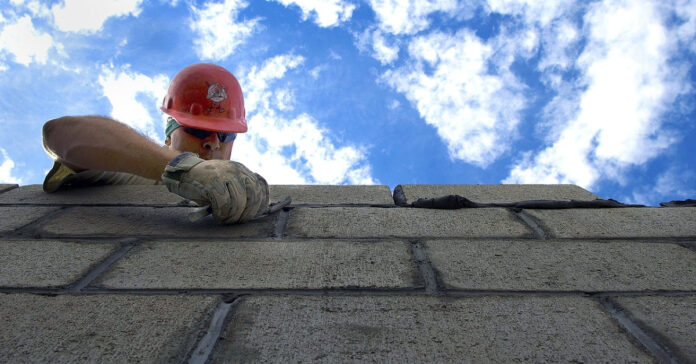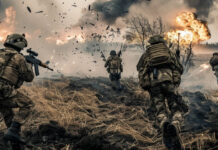Much of what we have done for all our lives is because someone else told us to. As kids, parents set bedtimes and woke them for school. When these kids went off to college, many choose to sleep in, missing classes. They learn the hard way that they have to have self-discipline to get up instead of hitting the snooze button. Those that learn this lesson and develop self-discipline graduate; those that don’t fail.
This is why a college degree remains important: It proves you can pull your stuff together, jump through the right hoops and meet a certain minimum standard. That tells employers something about you.
For example, as an employee, they expected you to adhere to the company’s schedule, whether you worked 9 to 5, second shift at a hospital, or a rotating schedule that includes days some weeks and nights on others. They also expected employees to meet deadlines, work well with others, and achieve their goals. Graduating college in four years gives employers hope you can probably do that. So does military service. Employers can teach you the technical aspects of the job more easily than they can teach you the discipline to consistently show up and do your job.
When society collapses and you have no official job to report to, the ability to be self-discipline and motivated is still going to be important, as will characteristics like showing initiative and attention to detail. They could be the difference between success or failure as a survivalist, which could be the difference between life and death.
Survival Requires Self-Discipline and Self-Motivation
After a SHTF situation, your routine will change and you will suddenly have the freedom to sleep whenever you want. But you can’t. Not if you want to be productive and safe. In fact, self-discipline and self-motivation will be even more important after the SHTF. So will the ability to get along with others and work as a team.
Let’s imagine you and your family have doubled up with another family to combine your resources and labor during the bad years. If you all sleep on the same schedule, there’s a good chance raiders will catch you unprepared, whether they are an outside force passing through the area or just envious neighbors who want your stuff.
To keep this from happening, someone is going to have to stand guard on rotating shifts. If the guard raises an alarm, everyone in the house needs to know where to go and what to do, whether that is sheltering in the basement with the kids and a 12-gauge or grabbing your AR and a bag of extra magazines and taking up a fighting position.
That’s where self-discipline will come in. If people blow off their guard duty, don’t harvest the tomatoes when they are ripe, fail to check the traps, or forget to feed the chickens, your chance of survival is going to decrease.
An Example
Let’s take a deeper look at the case of deciding who stands guard when. Maybe everyone in the retreat or community will have a big discussion and come to a meeting of the minds in which everyone volunteers to take a specific watch. A workable consensus is great and you can then hold each other accountable. But a consensus is not always possible. It is more likely someone will have to set the schedule and assign shifts. That someone might even be you, which means you will have to set a good example and be self-motivated.
I think we’ve all seen what happens when you have a democracy where immature and selfish people get to vote: they vote themselves bread and circuses, legalize marijuana, repeal bail, and let criminals out of jail. That approach is failing now and it sure won’t work after the SHTF when there is no longer a safety net and your “basic income” is whatever food you can raise. In that scenario, someone has to take charge, set a schedule, assign roles, and make sure people live up to their responsibilities. If no one else is doing this, you might have to step up.
Leadership Styles
There are many styles of leadership and many ways to that position. Sometimes it’s stepping up. Sometimes it’s being elected. It may even be a given. Pick your leader whatever way works for you, your people, and your situation.
In this retreat, I am the leader. That doesn’t mean I know it all and I don’t go it alone. I form a leadership team, and I use people where they have knowledge and experience. If someone in our retreat has gardened successfully for 20 years, they are in charge of the garden. If someone else is a nurse, they are in charge of our wellness. I lead by defining the objectives, setting the priorities, and putting people in the positions where they can best help us get there. I also make decisions, solve problems, and give recognition for a job well done.
There are times when a leader must lead sternly and accept no debate, and there are times when a leader can hear all sides, be swayed by convincing arguments, and go with what someone else recommends. The difference is time and criticality. There is no time for debate or a vote when four vehicles are approaching the roadblock; everyone must do their assigned job.
Let’s assume that one of the people who bugged out here did two tours in Iraq and has experience manning roadblocks and checkpoints. When we set up the roadblock, I’d be a fool not to listen to them.
Danger and Opportunity
As I said yesterday, a period of great change represents both danger and opportunity. How well you adapt to the new world after the SHTF may create opportunities. The loss of everything electronic, including money and other resources, will create a level playing field where most people will be starting from scratch. Yes, many people will have guns, but only some will have large stocks of ammunition. Some will have silver, but fewer will have gold. There will be opportunities for those who are well prepped, assuming they can survive.
There will also be opportunities for people who lacked education and skills useful in the modern world. Maybe your job today is unskilled, like being a common laborer. You make only a fraction of what your college educated cousin makes as a computer engineer for that tech company. That won’t matter after that SHTF.
I want the laborer on my team because they have worked outside at a physical job. In a long-term survival situation, that is the equivalent of a four-year college degree and will be valuable. I don’t care if all you did was lay cinderblocks, you are going to be better able to adapt to a life of manual labor post SHTF than the computer geek who spent the last fifteen to twenty years in a padded chair growing increasingly nearsighted as they started at a screen. When the electricity is out, the Internet is a memory, and we need to dig defensive trenches, cut down trees, and build a bunker, the block layer is going to be far more useful than the coder.
Different Skill Sets
OK, maybe the computer guy can program our BaoFeng radios and help maintain the solar system. I’m not saying they will be useless. I’m just saying that when the world reverts to the level of technology that existed in the 1880s, people who can do physical jobs are going to be more useful than those who can’t. We will still need people who can innovate, but that innovation is more likely to be mechanical than electronic. The person who can build a waterwheel to run a lathe is going to have a brighter future than the individual who could write the software to run a computer-controlled lathe.
The world after whatever disaster befalls us will be different, but the ability to work hard, be disciplined and motivated will remain important. You just will have to apply that focus to new and different areas.
The ability to be flexible and to roll with the punches is also going to be critical if you wish to land on your feet. After a disaster, there will be people who give up. They will shrug and say, “I don’t want to live in a world without (fill in the blank). There will be others who spend their time mourning what was to the extent that they don’t work towards something new. Then there will be the people who shake off the loss of the world as they knew it and go on, adapting to and building in the world they have inherited. That’s what you need to do.
The End Game
It’s going to take self-discipline and motivation. It’s going to require forward thinking and a positive outlook. I expect it will also take faith, but that same will power that got you up for your shift and made you keep working at a job you hated so you could pay the bills can help save your life and see you through the end times and out the other side. Stick with it and don’t give up.







